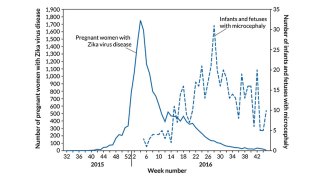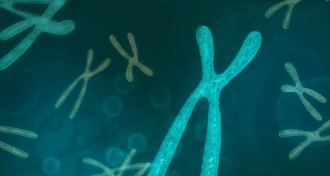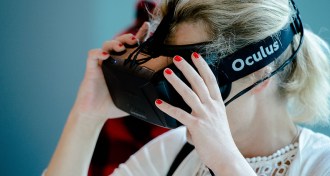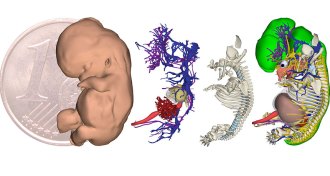Humans
Sign up for our newsletter
We summarize the week's scientific breakthroughs every Thursday.
-
 Health & Medicine
Health & MedicinePenicillin allergy? Think again.
Most people are either mislabeled with a penicillin allergy or get over it with time, and doctors don’t always think to check.
-
 Health & Medicine
Health & MedicineMicrocephaly cases surge in Colombia following rise in Zika infections
More than 400 cases of microcephaly have been reported in Colombia this year, months after Zika virus infections peaked in the country.
By Meghan Rosen -
 Health & Medicine
Health & MedicineMicrocephaly cases surge in Colombia following rise in Zika infections
More than 400 cases of microcephaly have been reported in Colombia this year, months after Zika virus infections peaked in the country.
By Meghan Rosen -
 Life
LifeCells avoiding suicide may play role in spread of cancer
A newly discovered process can pull cells back from the brink of death.
-
 Health & Medicine
Health & MedicineOldest traces of smallpox virus found in child mummy
The oldest genetic evidence of smallpox comes from variola virus DNA found in a child mummy buried in a church crypt in Lithuania.
By Meghan Rosen -
 Life
LifeHaving an extra chromosome has a surprising effect on cancer
Extra chromosome copies may protect against, not cause, cancer.
-
 Ecosystems
EcosystemsLosing tropical forest might raise risks of human skin ulcers, deformed bones
Bacteria that cause Buruli ulcer in people flourish with tropical deforestation.
By Susan Milius -
 Neuroscience
NeuroscienceBrain waves show promise against Alzheimer’s protein in mice
Flickers of light induce brain waves that wash amyloid-beta out of the brain, mouse study suggests.
-
 Science & Society
Science & SocietyVirtual reality raises real risk of motion sickness
New research confirms anecdotal reports that virtual reality headsets can cause motion sickness, and may affect women more than men.
By Betsy Mason -
 Health & Medicine
Health & MedicineDatabase provides a rare peek at a human embryo’s first weeks
A new 3-D atlas charts the growth of each and every organ in the developing human embryo, from the heart to the gut to the brain.
By Meghan Rosen -
 Psychology
PsychologyYou’ve probably been tricked by fake news and don’t know it
In the fight against falsified facts, the human brain is both the weakest link and our only hope.
-
 Anthropology
AnthropologyReaders ponder hominid hookups and more
Neandertal evolution, quantum internet and more in reader feedback.